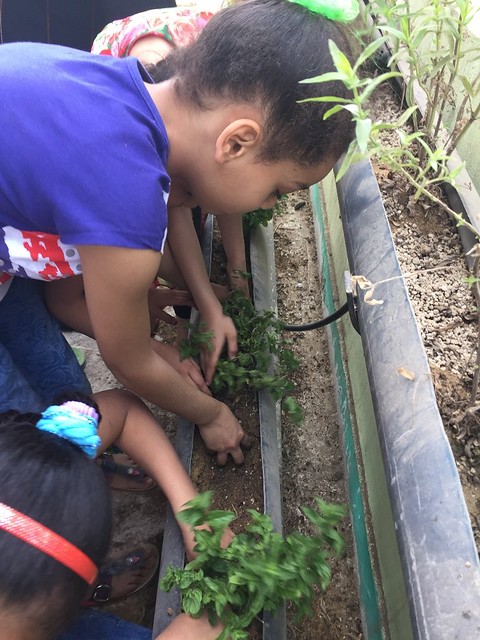
International Day of Forests is a day to celebrate the significant contributions of the world’s forests. The U.S. Forest Service commemorates the day and its 2018 theme “Sustainable Cities” with all our domestic and international urban partners. This year, the Forest Service is proud to feature a partner program in Egypt.
Since there is very little forested lands in Egypt, only about .01 percent of all wildlands there, the concepts of agroforestry are being applied in very unexpected places—the rooftops of Cairo.
Cairo, being the capital of Egypt, is home to nearly 20 million people. It is one of the most vibrant and populous cities in the world. Rapid population growth, urbanization, and the degradation of agricultural land make green spaces rare. Additionally, food prices have increased sharply recently. Fresh produce like tomatoes, a staple vegetable in the Egyptian diet, has tripled in price. In response, alternative food production is needed to assist the diets and livelihoods of Cairo’s residents.

While green spaces in Cairo are few, buildings are plentiful. Since 2012, the Forest Service has partnered with the Research Institute for a Sustainable Environment (RISE) at the American University in Cairo to design and implement rooftop garden systems.
Rooftop gardens have myriad environmental, economic, and social benefits, including high-quality food production, sustainable water use management, temperature moderation, architectural aesthetics, and increased environmental awareness. According to one RISE employee, Rouba Dagher, the green roof, “not only provides sustainable opportunities in disadvantaged neighborhoods, but also has a great impact in building stronger social connections inside the community.”
Forest Service consultants worked with RISE staff to develop both a traditional raised-bed, soil-based garden and more recently, a hydroponic garden system. Hydroponics is a method of growing plants using mineral nutrients in water without soil. It typically uses 85 percent less water than conventional agriculture, but requires more technical and financial investment up front. Initial tests indicate the hydroponic rooftop garden grew faster, healthier, and tastier produce.
Both systems use locally available materials and show promise as viable alternatives to traditional agriculture in urban communities. Moving forward, the Forest Service hopes to work with RISE and community groups to develop and implement a simplified, affordable hydroponic system that can be replicated throughout the city.
Eman El Sawy, a member of the Al Amal School for Deaf Community garden team, believes this is a positive first step. The rooftop ‘farm’ she stated, “motivated us; it keeps us going and now we feel we can keep getting better. The students now enjoy the greener landscape as well as the agriculture classes.”

